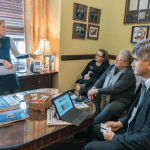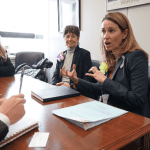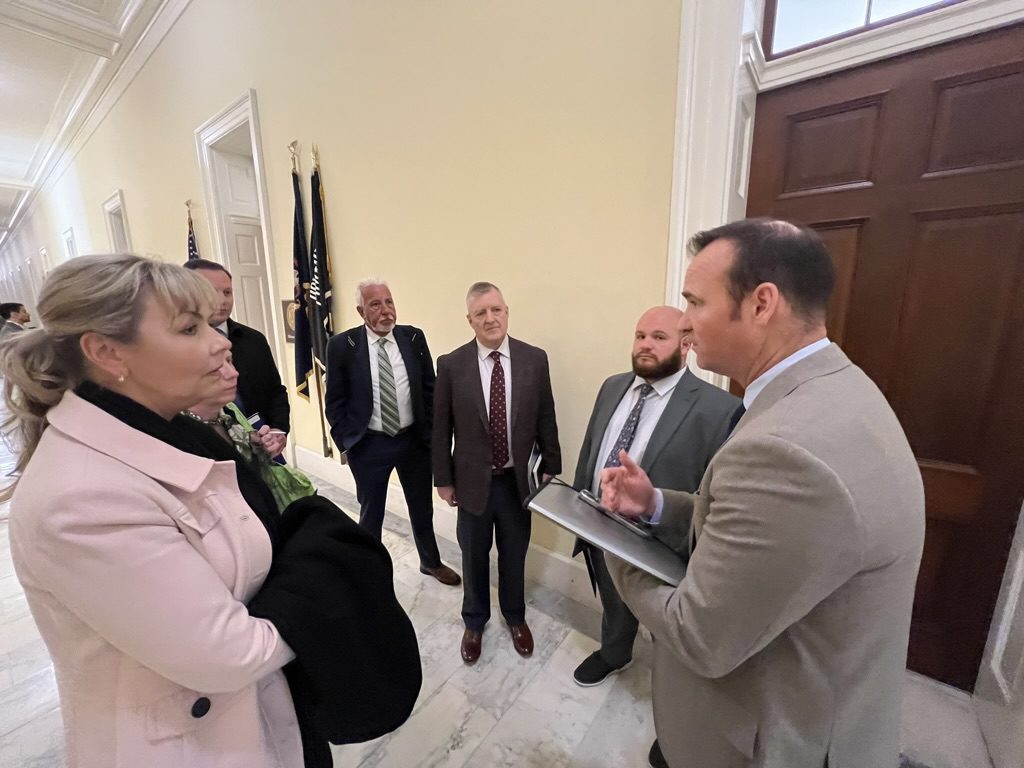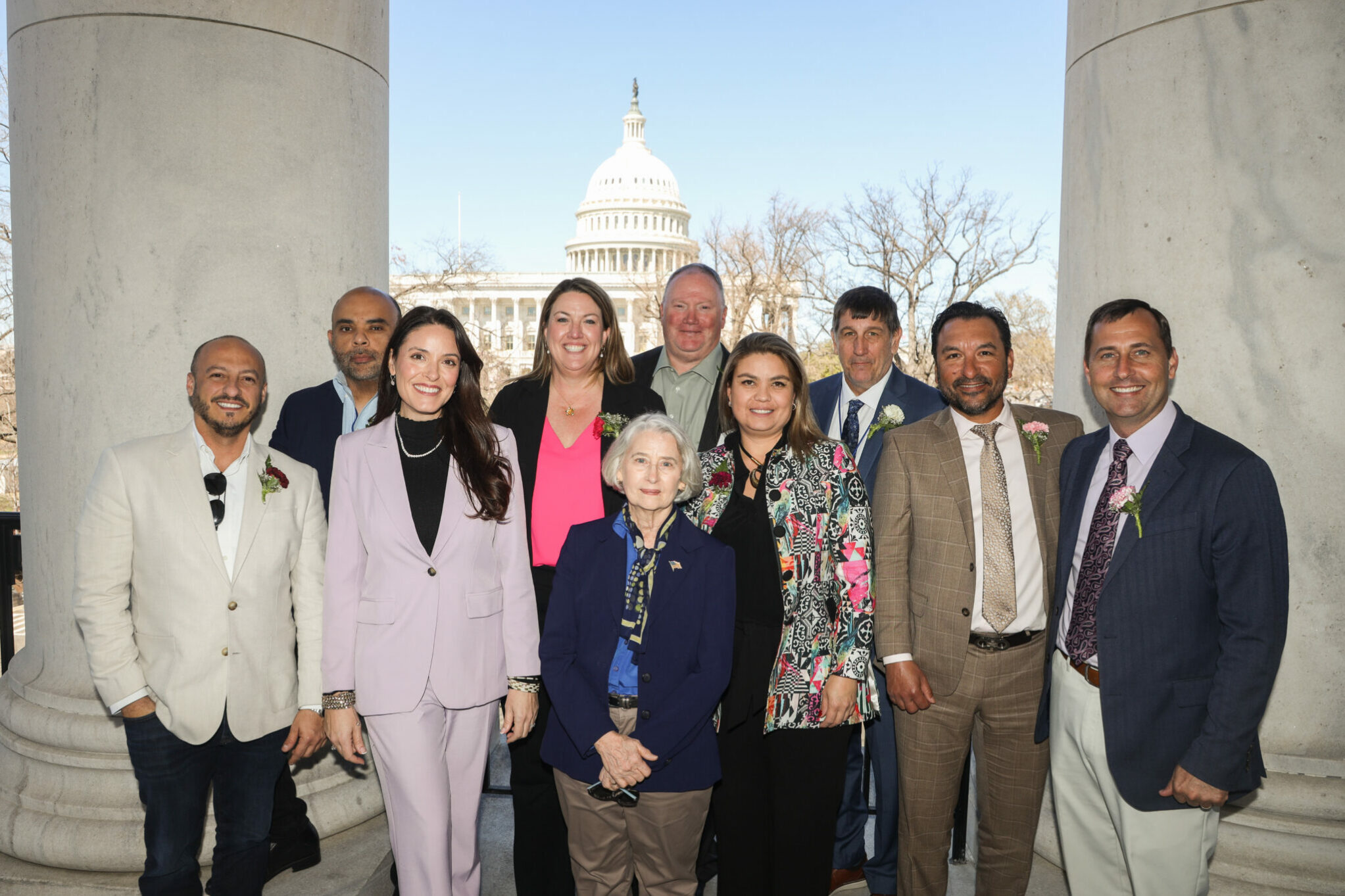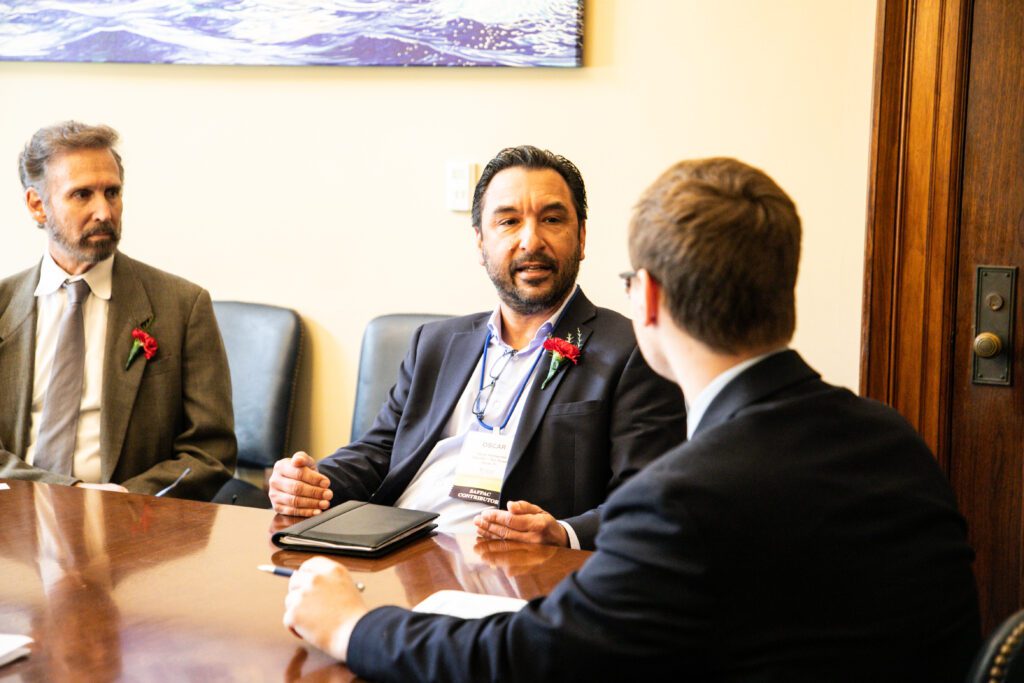
Shifting congressional priorities and greater focus on the national debt amplify the need more than ever for the Society of American Florists to keep the industry’s research priorities top of mind among lawmakers.
The Floriculture & Nursery Research Initiative (FNRI), a partnership between the Agricultural Research Service (ARS), universities, and industry experts, has enjoyed substantial funding increases in the past. Those increases include an additional $1 million for the 2023 fiscal year — in large part because of SAF’s year-round advocacy through its lobbying team and annual congressional fly-ins, when industry members advocate with their lawmakers for additional research funding.
But maintaining funding is increasingly difficult as Congress and the administration look to curtail new spending with an eye toward reducing the rate of growth of our nation’s debt, says SAF Senior Lobbyist Joe Bischoff, Ph.D.
“Every year it is a battle, and that battle is getting tougher in a lot of ways,” he says. “It’s getting harder to not only increase funding, but to hold onto funding. And so whether it’s FNRI or anything else, we need to be working, hustling and advocating for the priorities of the floral industry.”
A House bill, which includes a $500,000 increase for FNRI for fiscal year 2025, and a Senate bill, which maintains current funding levels, have become hindered by hot button policy riders like abortion and contraception, derailing efforts to move them on the floor for a vote, particularly in the House, Bischoff says. The bills will likely be considered in conference between the two chambers later this year, he says.
“Eventually, the appropriations bills will have to get done one way or another and we’ll be working to make sure that whoever is involved in their conferencing is aware of just how important these resources are for the floral industry,” says Bischoff.
The floriculture industry is reliant on the public research sphere to pursue basic research and research associated with production-related questions. Recently, the funding has been used for gene-editing to more quickly develop new varieties of flowers and plants. Gene editing alters the genetic material of a living organism through the process of inserting, removing, or replacing a DNA sequence.
In flowers and plants it can help achieve desired traits, such as color, increased shelf life, pest and disease resistance, thornless stems, or even the scent of the flower.
In a competitive market, gene-editing presents the opportunity to create products the industry needs to meet the needs and expectations of consumers, says Jack Okamuro, ARS national program leader for biotechnology and risk.
“ is an important part of the retail market now, and so having new products — having better products and products which can entice consumers to buy and to buy again — is something that breeders work on continuously,” Okamaro says.
Funding for gene-editing research allows scientists and breeders such as Okamaro to develop and deploy new varieties that benefit growers and consumers.
FNRI research has the potential to pursue and achieve superior varieties needing less fertilizer, less water, and fewer pesticides.
“This is the future of plant breeding,” Bischoff says. “Which is why we need floral professionals to keep funding needs top of mind for lawmakers.”
The best way to do that, he says, is to participate in SAF’s congressional fly-ins or invite a member of Congress to your place of business to build a relationship and give them a deeper understanding of the floral industry and its challenges. And, make plans to be at SAF’s Congressional Action Days, March 16-18, 2025.
“Every ask of Congress gets greater scrutiny than in recent years so building connections and educating decision-makers is more important now that at any point in the last decade or more,” Bischoff says.
Roxy Eckberg is a contributing writer for the Society of American Florists.

